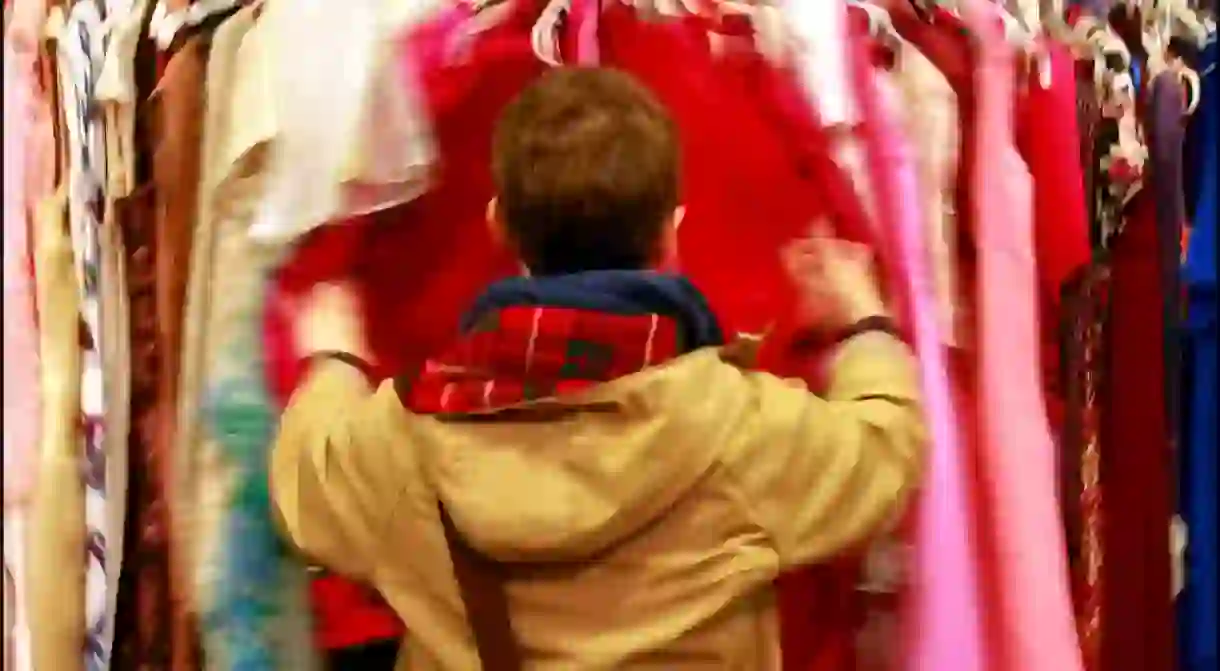How Sustainable Fashion in Berlin is Giving Back

Sustainability, from clothes to food, is on the rise in the German Capital due to an increased global interest in organic products and a greater awareness of one’s eco-footprint. Thanks to a shift in appreciatation for ethical fashion, in Berlin, smaller labels with a conscience are becoming more and more celebrated as stylish consumers begin to boycott throw-away fashion, embracing a more eco-friendly alternative.
Berlin is well-known for its green spaces, clean-living and organic lifestyle, but Upcycled fashion (the concept of re-using discarded pieces of cloth and fabric left over from the fashion industry) is a relatively new concept in the city’s fashion scene. Playing host to Fashion Week twice a year and priding itself for its creativity and uniqueness, Berlin is no stranger to trendsetting. Yet when it comes to a general awareness for the new trend, local Berliners have been slow to catch on.
Enter Arianna Nicoletti, the brains behind Aluc, one of the city’s first Upcycling Fashion stores. Acting at first as a concept store that brought together upcycled designers, labels and goods under one roof, Nicoletting quickly realised that the store worked better as an information point, rather than a store to buy stuff. “We built up a label called Aluc in 2010 and, at the time, our idea was to establish upcycling fashion and let people know what it is, as no one knew much about the term and we were really shocked to see the gap in knowledge,’ Arianna explains.

So, in 2015, together with Anna Perrottet from Get Changed! and Mariangeles Aguirre from HolaBerlin, Arianna established Green Fashion Tours, with the purpose of providing information. The urban tour project focuses on sustainable fashion, with the goal of educating the public on fashion’s environmental and social issues. Their unique, curated tours present an alternative option in ethical fashion and give consumers the knowledge and skills to buy and even make more responsibly. The tours have proven to be a great resource for Berlin’s many fashion schools. ‘We started the tours in 2015 and […] noticed that a lot of people who were coming along were students who wanted to know more about this topic, or even professors wanting to incorporate sustainable fashion into their fashion and design curriculum,’ says Arianna.
The tours are based on six different topics, covering upcycling and circular fashion, neighbourhood tours of hidden gems, sustainable consumption, fair fashion, as well as hands-on workshops. ‘The Berlin scene is very interested in learning new handicrafts. We have these packages which are informational and hands-on and people love them, because they don’t just want to see, they also want to experience it,’ explains Arianna. The tours work with other sustainable platforms and projects within Berlin and provide creatives and curious people with a fun yet informative way to learn about eco-fashion.

Giving back to the community
Beyond upcycling labels and stores, Berlin is also brimming with well-curated vintage and second-hand stores. Arianna explains that, ‘there is a huge audience looking for alternatives to fast fashion in Berlin,’ and some of these stores even go the extra mile for the wider community.
Since 1994, Komme & Sieh (Come & See) has been a working branch of the Berlin City Mission, helping gather and distribute clothing to people in need. With a number of different projects, this cohesive platform has a range of projects that work with second-hand clothing. Arianna, who has admired the project for some time, says, ‘they decided to open second-hand stores and create an upcycling label, and they employ refugee women and other people in need to help upcycle the clothing and materials they wouldn’t be able to sell in the stores.’ This circular economy model is rooted in sustainability, but also reflects the Berlin ethos, of giving back to the community in innovative and inspiring ways.

Dynamic labels
Sustainable fashion is also about finding ethical and socially conscious ways to produce work. Berlin’s fashion scene is embracing this trend. ‘Most of the pioneers in the field of sustainable fashion come from Berlin and the reason why is that there are a lot of fashion schools in Berlin, and of course a lot of art and opportunities,’ explains Arianna.
Perhaps one of the most interesting Berlin-based trailblazers is Folk Days, a fair fashion label for people who appreciate new ways of buying, living and enjoying fashion. Arianna, who has highlighted the project on one of the Green Fashion tours, explains that, ‘they have products from more than 20 countries. They go to various communities and look at the types of handicrafts that are disappearing because of globalisation and they try to keep them alive while designing with the locals.’ Folk Days is unique in its collaborative process: ‘It’s about starting a co-design process and at the same time keeping these crafts alive,’ says Arianna.














